【In-depth Report】Energy Transformation Sparks New Horizons: Methanol-Hydrogen Electric Extends Long-distance Reach
![]() 07/17 2025
07/17 2025
![]() 472
472
Methanol-hydrogen electric technology stands as a pivotal pathway for new energy advancements in the commercial sector, seamlessly aligning with the operational conditions and environments of commercial applications. It is poised to not only serve as a viable solution for China's green energy transition in road transportation but also inspire innovative approaches in green shipping, mining, and power systems.
Amidst the accelerating global energy transition and intensified pursuit of "dual carbon" goals, methanol-hydrogen electric technology is gaining significant attention in the transportation energy sector. This technology boasts comprehensive potential in ensuring energy security, achieving substantial carbon reduction, and generating economic value. At the 2025 China Automobile Forum, held from July 10th to 12th, methanol-hydrogen electric technology made its debut through a themed forum titled "Methanol-Hydrogen Electric: A New Engine for Industrial Win-Win and New Ecology - The Path of Innovation and Development for China's Methanol Automobile Industry Ecology." The forum comprehensively reviewed the outcomes and experiences of methanol vehicle applications in commercial vehicles, urban transportation, and other scenarios. It also delved into discussions on optimizing the entire "production-storage and transportation-application" industry chain, enhancing overall efficiency and benefits, and providing insights for technological progress, industrial development, and innovative breakthroughs. This forum allowed both insiders and outsiders to gain a deeper, more holistic understanding of methanol-hydrogen electric technology.
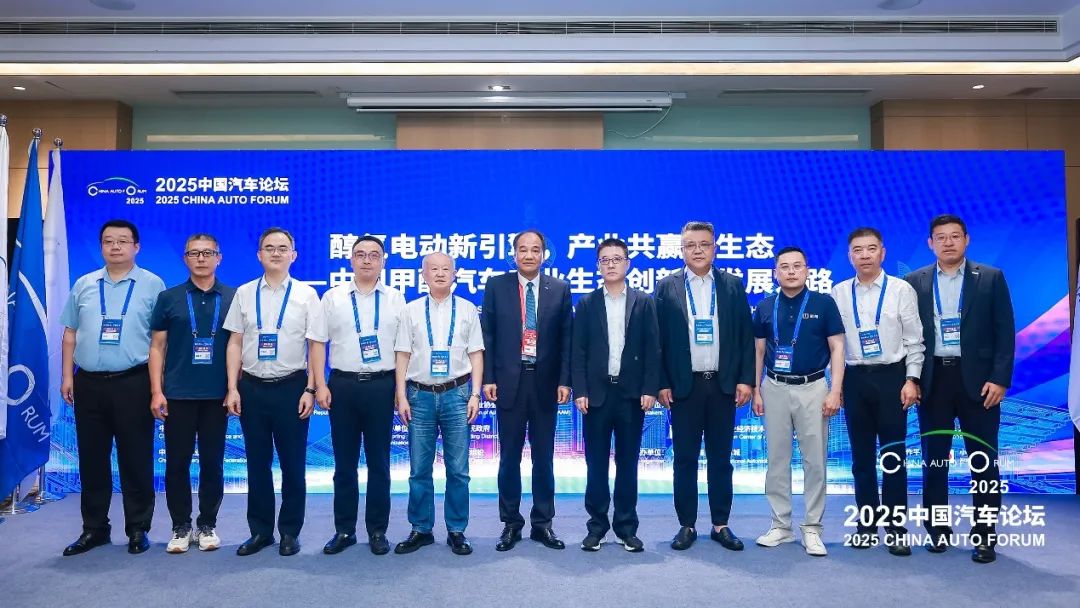
Attendees at the forum included Yan Jianming, Secretary of the Anting Town Party Committee in Jiading District, Shanghai; Yao Chunde, Secretary-General of the Methanol Automobile Expert Guidance Committee of the Ministry of Industry and Information Technology; Fang Haifeng, Chief Expert of the China Automotive Technology and Research Center and Deputy Director of the China Automotive Strategy and Policy Research Center; Wang Xin, Deputy General Manager of Tianjin Binhai New Area Public Transport Group Co., Ltd.; Guo Lei, Vice President of Geely New Energy Commercial Vehicle Group; Song Zhaohuan, Vice President and Chief Brand Officer of Geely New Energy Commercial Vehicle Group; Zhao Kai, Chief Representative of the Global Methanol Industry Association in China; and other distinguished guests. Through comprehensive sharing, communication, and practical dialogues, they collectively analyzed the opportunities and challenges faced by the development of methanol-hydrogen electric technology. The forum was hosted by Ye Shengji, Chief Engineer of the China Association of Automobile Manufacturers.
A consensus emerged among participants: whether from the perspective of energy security or energy conservation and carbon reduction in commercial vehicles, the prospects for methanol-hydrogen electric technology are profoundly broad. It is anticipated to contribute significantly to the diversified development of China's new energy structure and the early realization of dual carbon goals in the transportation sector.
Constructing a Diversified New Energy Structure and Accelerating "Dual Carbon" Goals
As Ye Shengji noted, the automotive industry is evolving towards greater sustainability, with low carbon becoming a fundamental direction for industry-wide development. China's automotive industry necessitates a diverse array of technologies on its low-carbon path, particularly in various application scenarios where different technologies and products are essential to meet market demands. Among these, methanol vehicles and methanol-hydrogen electric technology have emerged, not only carrying the crucial mission of the automotive industry's sustainable development but also shouldering the significant responsibility of energy transition, contributing to the achievement of dual carbon goals. They possess the potential to become a new engine driving the advancement of new energy vehicles.
Yan Jianming emphasized that exploring the path of innovation and development for the methanol automobile industry ecology is not only a proactive response to the "dual carbon" goals and green transformation but also a crucial practice in nurturing and developing new productive forces within China's automotive industry, thereby constructing a diversified new energy structure. "Currently, the global energy structure transition is in an acceleration phase. As the world's largest automobile market and a pioneer in new energy technologies, China is leading the green transportation transformation with an open and collaborative approach. Methanol fuel, characterized by widespread sources, clean production, and efficient application, has emerged as a strategic choice for addressing the 'triple challenge' of energy security, carbon reduction, and efficiency enhancement, while also increasing user income. Notably, in scenarios such as commercial vehicles and urban transportation, methanol-hydrogen electric technology has demonstrated immense potential for large-scale implementation." Yan further stressed that methanol-hydrogen electric technology represents not just a technical route innovation but also a systemic transformation of the energy system, industrial ecology, and even business models. In this process, Anting is eager to serve as a testing ground for technological breakthroughs, an incubator for model innovation, and a nexus for global cooperation. Moving forward, it will leverage its industrial agglomeration advantages, rely on the Shanghai New Energy Vehicle Testing Platform to support technical verification and standard formulation for methanol fuel, open up scenarios like urban transportation and logistics distribution to expedite the implementation of commercial demonstration projects, optimize policy services to attract leading enterprises and top talents in the industry chain to settle in Anting, and foster an innovation hub for methanol-hydrogen electric technology.
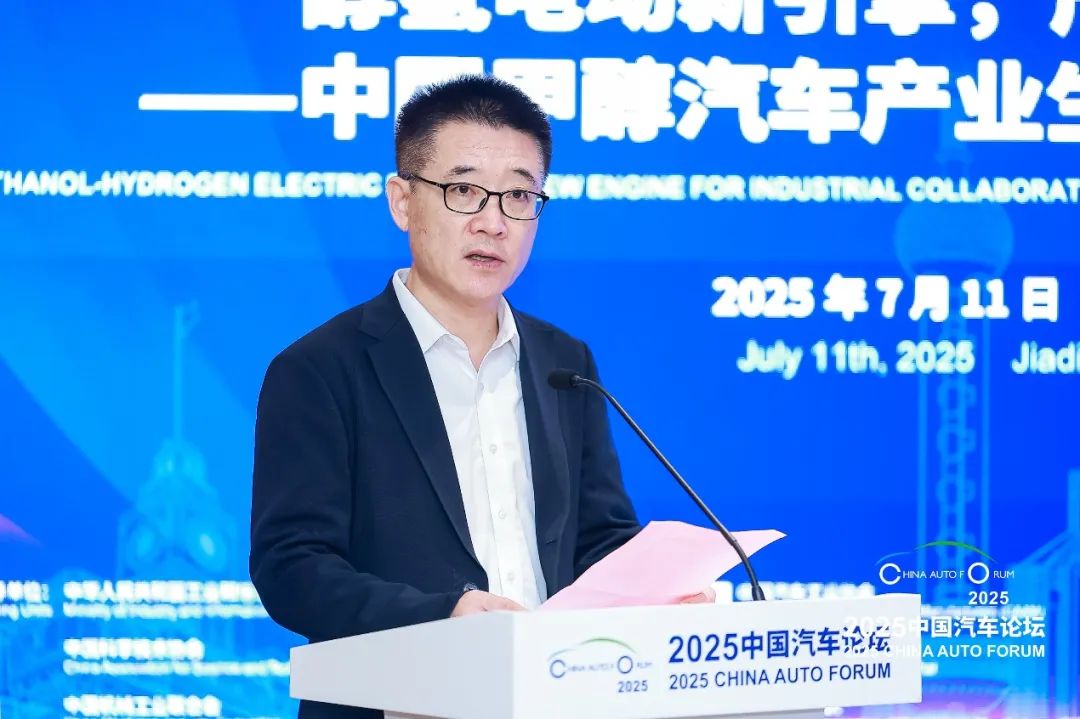 Yan Jianming, Secretary of the Anting Town Party Committee in Jiading District, Shanghai
Yan Jianming, Secretary of the Anting Town Party Committee in Jiading District, Shanghai
Yao Chunde, an expert deeply entrenched in the field of methanol vehicles, elaborated on the four primary advantages of methanol fuel: low carbon content, exceptionally clean combustion, being a liquid at normal temperature and pressure (facilitating transportation and storage), and widespread sources with abundant resources capable of producing methanol. Yao revealed that last year, China's methanol production reached 110 million tons, roughly equivalent to annual gasoline production, thereby possessing the capacity for large-scale replacement of petroleum products. "More encouragingly, the development speed of green methanol in China is exceptionally fast." Yao believes that methanol fuel excels in production, storage, transportation, and application, is safe to use, and has been widely adopted in the commercial vehicle sector. Its application scope is expected to expand further, contributing significantly to the achievement of "dual carbon" goals and ensuring energy security.
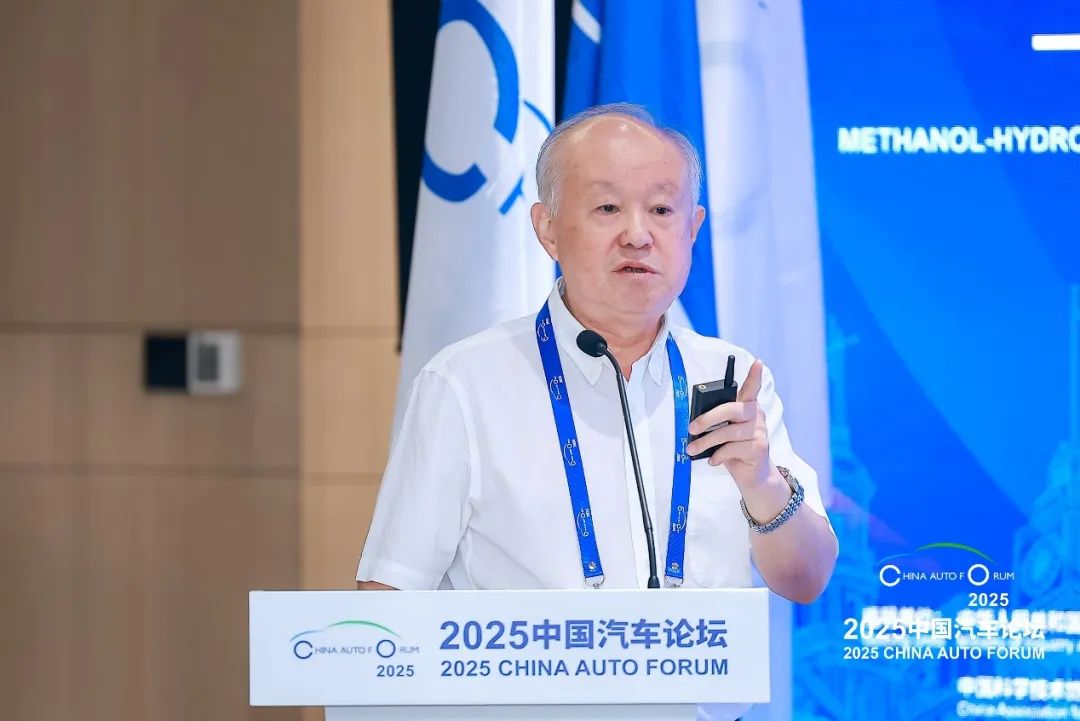 Yao Chunde, Secretary-General of the Methanol Automobile Expert Guidance Committee of the Ministry of Industry and Information Technology
Yao Chunde, Secretary-General of the Methanol Automobile Expert Guidance Committee of the Ministry of Industry and Information Technology
Specifically within the automotive industry, especially in commercial vehicles, methanol-hydrogen electric technology has demonstrated unique advantages and competitiveness. "Although commercial vehicles account for less than 10% of the total vehicle fleet, they contribute to over half of carbon emissions. Coupled with the diverse application scenarios of commercial vehicles, the current electrification transition is relatively more challenging compared to passenger vehicles." Fang Haifeng candidly stated that while hydrogen fuel cell technology has achieved notable results in recent demonstration work, with a certain scale of hydrogen fuel cell vehicles and hydrogen refueling stations being promoted, there remain numerous practical challenges in hydrogen energy supply. Methanol vehicles exhibit certain advantages in carbon reduction potential, economy, technology, and infrastructure and are well-suited to become one of the vital low-carbon transformation pathways for commercial vehicles. In terms of scenario expansion, methanol and hydrogen electric vehicles can complement each other's strengths.
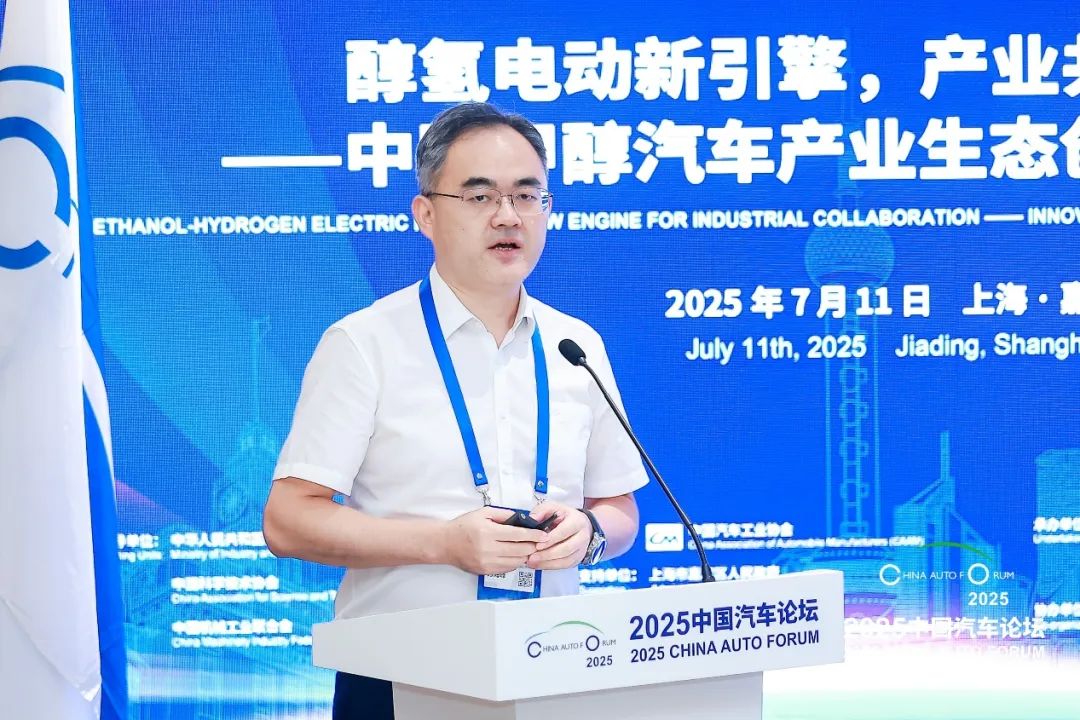 Fang Haifeng, Chief Expert of the China Automotive Technology and Research Center and Deputy Director of the China Automotive Strategy and Policy Research Center
Fang Haifeng, Chief Expert of the China Automotive Technology and Research Center and Deputy Director of the China Automotive Strategy and Policy Research Center
Jointly Building a New Methanol-Hydrogen Ecology and Ushering in a New Era for the Industry
As a global leader in the methanol ecology and a pioneer in carbon neutrality, the Geely Group has consistently adhered to the philosophy of "utilizing green methanol to address the world's energy and dual carbon challenges." With over 20 years of expertise in the methanol field, Geely has achieved a significant leap from small-scale pilot operations to large-scale promotion and application of methanol-hydrogen electric vehicles, investing heavily in manpower, material resources, and finances to explore a successful, long-term sustainable development path.
According to Guo Lei's introduction, after more than two decades of continuous R&D investment and industrialization efforts, methanol fuel has overcome numerous industry challenges, including corrosion, swelling, low temperature, and efficient combustion. The adaptability, reliability, economy, safety, and environmental friendliness of methanol power have been fully industrialized and rigorously verified by the industry. Geely is leading the industry into a new era of green fuel development. "To date, we have deployed over 50,000 methanol vehicles with a cumulative operating mileage exceeding 23 billion kilometers, and the longest operating mileage has surpassed 1.5 million kilometers." Guo Lei noted that based on the green and mature methanol power system, Geely has successfully developed a methanol-hydrogen electric power configuration.
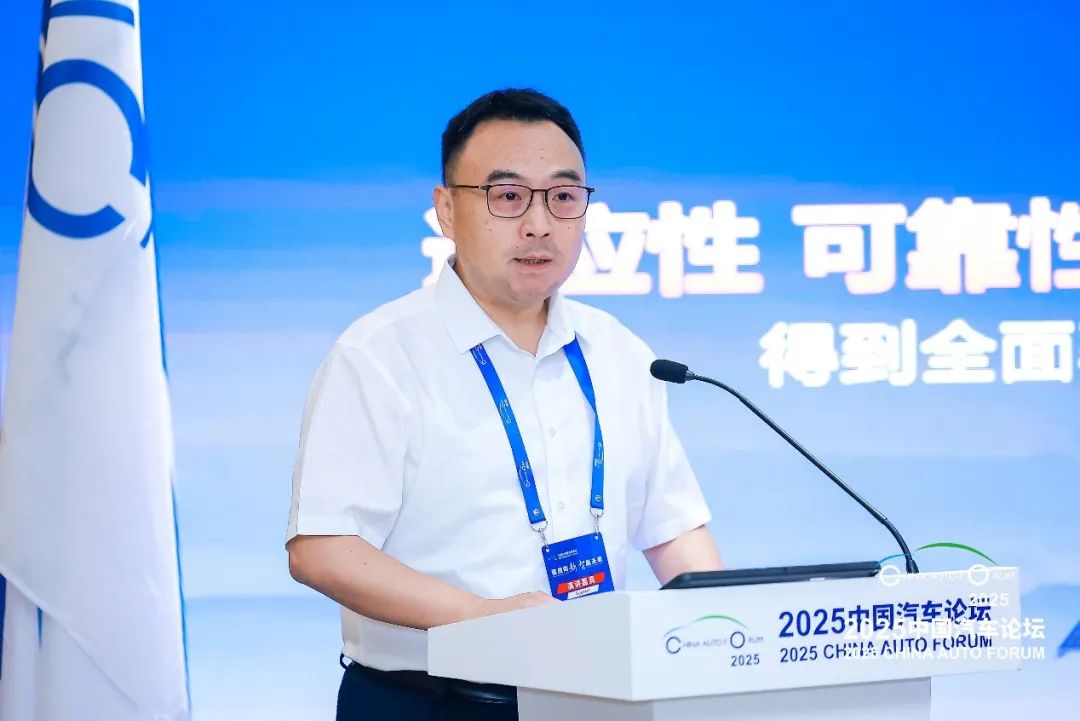 Guo Lei, Vice President of Geely New Energy Commercial Vehicle Group
Guo Lei, Vice President of Geely New Energy Commercial Vehicle Group
It is understood that compared to the pure electric technology route, methanol-hydrogen electric technology not only addresses chronic issues like range anxiety and excessive curb weight but also enhances load capacity and reduces vehicle procurement costs. Guo Lei proposed that since the operating temperature range of methanol fuel spans from -97°C to 64.7°C, it is highly suitable for commercial use, applicable to virtually all operating conditions and environments, whether on roads or off-road. Additionally, as methanol fuel inherently contains oxygen, it can maintain power without attenuation at altitudes of 3000 meters. What is particularly noteworthy is that methanol fuel can be rapidly decomposed under sunlight and water, thereby offering unique benefits in reducing environmental pollution.
Guo Lei emphasized that commercial vehicles, as production tools, inherently possess strong material attributes, making them confront numerous pain points and shortcomings in deep electrification. As one of the leading enterprises in new energy commercial vehicles, Geely New Energy Commercial Vehicle Group has introduced a novel power solution based on its fully self-developed methanol-hydrogen energy + electric technology—methanol-hydrogen electric. Reportedly, Geely New Energy Commercial Vehicle Group has developed a comprehensive range of new energy commercial vehicle products, spanning from multi-functional commercial vehicles (LCVs) to trucks, and extending to micro-trucks, light trucks, and medium-to-heavy trucks. These products cater to diverse scenarios such as express delivery, municipal sanitation, urban construction, cold chain logistics, mobile energy replenishment, urban passenger transport, and official vehicles, all of which offer users ultra-high economic benefits.
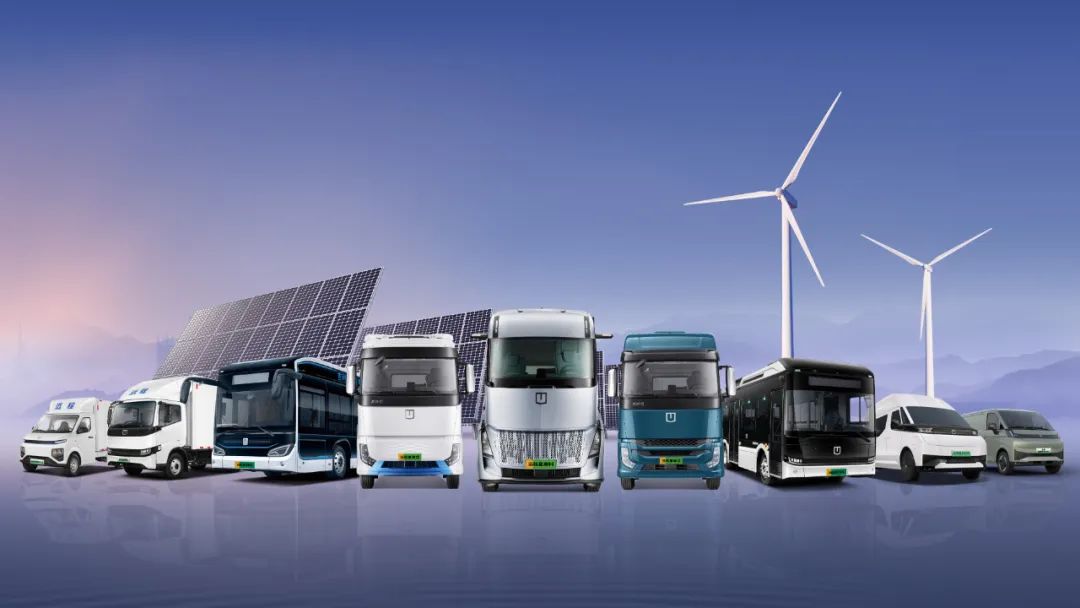
Guo Lei reiterated that as a technological pathway for new energy in the commercial sector, methanol-hydrogen electric technology is tailored to the primary operating conditions and environments of commercial use. It is not only anticipated to serve as an effective solution for China's green energy transition in road transportation but also inspires innovative approaches in green shipping, mining, and power systems.
Methanol-hydrogen electric technology enhances electrification by utilizing methanol fuel and engines as energy storage and conversion units, capitalizing on the benefits of methanol's high energy density, convenient refueling, safety, and reliability. At the forum, Wang Xin, a key player in this field, presented compelling data and achievements: Compared to diesel buses, each methanol-hydrogen electric bus saves approximately 60,000 yuan annually in fuel costs. Since their introduction in November 2023, Binhai Public Transport has deployed 586 such buses, logging approximately 1.29 million trips and 27 million kilometers annually, consuming about 13 million liters of methanol and reducing fuel costs by approximately 30 million yuan, significantly lowering operational expenses. Furthermore, refueling these buses takes 7-10 minutes, an 83% improvement over the one-hour charging time of pure electric vehicles. The flexibility in locating methanol refueling stations allows Binhai Public Transport to operate five 20-cubic-meter stations at bus depots, serving over 100 buses daily. To date, the 586 methanol-hydrogen vehicles have consumed approximately 6,615 tons of methanol, replacing 3,042 tons of diesel and reducing carbon dioxide emissions by 661.5 tons. "The Tianjin Binhai New Area's experience demonstrates that this technology addresses industry challenges while delivering economic and environmental benefits," Wang Xin concluded.
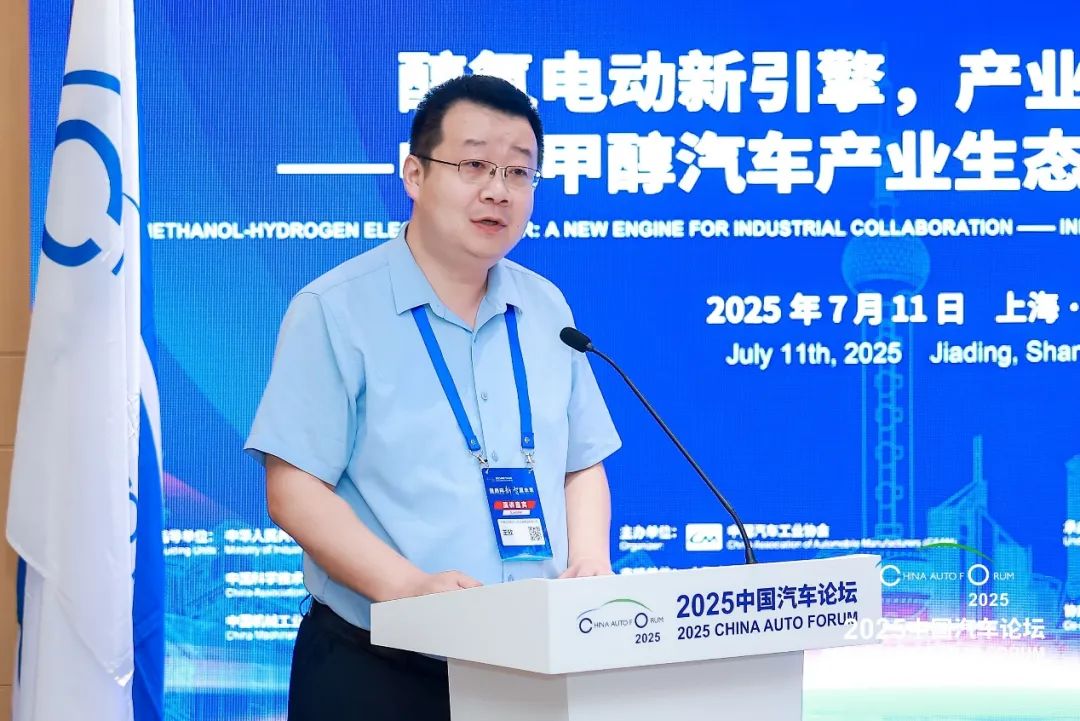 Wang Xin, Deputy General Manager of Tianjin Binhai New Area Public Transport Group Co., Ltd.
Wang Xin, Deputy General Manager of Tianjin Binhai New Area Public Transport Group Co., Ltd.
Collaboration for a Brighter Future
The growth of any industry hinges on the concerted efforts of all stakeholders. As methanol-hydrogen technology advances rapidly, it is crucial for the industry to adopt a long-term perspective, enhance technological exchanges and industrial cooperation, jointly plan for the future of the methanol-hydrogen electric ecosystem, and achieve high-quality development.
To this end, the Methanol-Hydrogen Electric Ecological Alliance was officially launched at the forum, uniting industry associations, academic institutions, core suppliers, energy security providers, product applicators, and authoritative media. This alliance aims to comprehensively promote the methanol-hydrogen electric ecosystem across energy substitution, advanced equipment, infrastructure development, standard setting, and science popularization, fostering coordinated and healthy development throughout the industry chain.
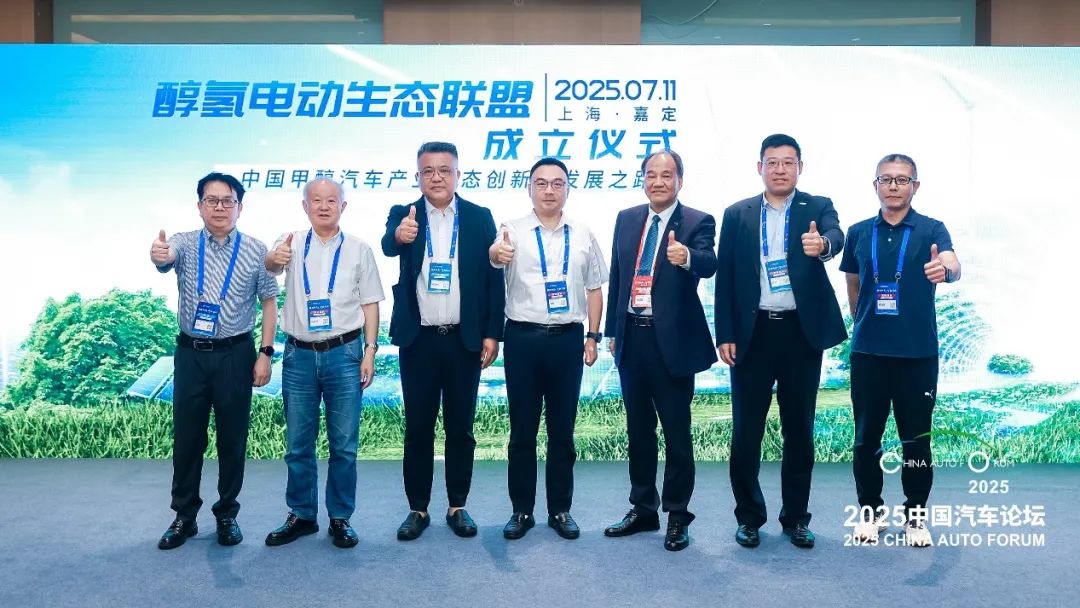 Establishment of the Methanol-Hydrogen Electric Ecological Alliance
Establishment of the Methanol-Hydrogen Electric Ecological Alliance
While consensus has been reached, the journey ahead remains challenging. At the forum, Ye Shengji, Chief Engineer of the China Association of Automobile Manufacturers, noted in the "Report on the Development of China's Commercial Automobile Industry (2025)" that commercial vehicle electrification lags behind that of passenger vehicles, with carbon emissions posing a significant challenge to their upgrade and development.
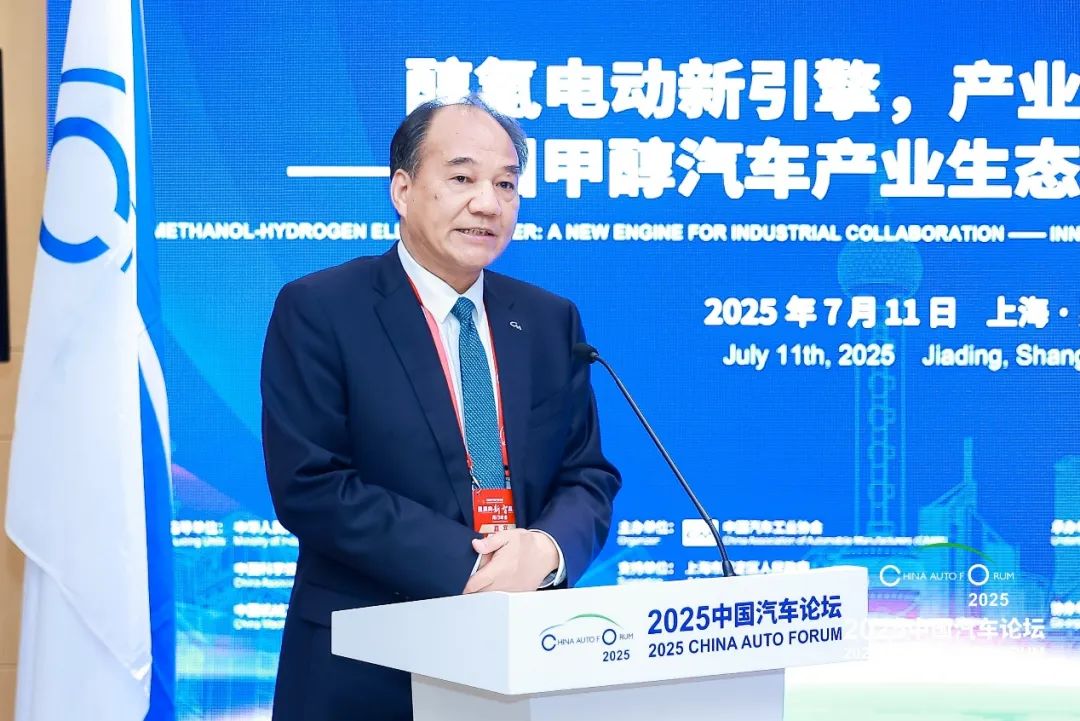 Ye Shengji, Chief Engineer of the China Association of Automobile Manufacturers
Ye Shengji, Chief Engineer of the China Association of Automobile Manufacturers
During the roundtable discussion, Song Zhaohuan emphasized the need to address the industry's "overcapacity" issue by providing innovative, eco-friendly, and advanced solutions. As a leader in the industry, Geely Commercial Vehicles is committed to participating in the energy revolution, collaborating with upstream and downstream partners, and striving alongside all ecological partners.
Zhao Kai highlighted the importance of recognizing methanol's energy status, suggesting that nationwide regulations for methanol fueling stations should follow the precedent set by the Energy Law for hydrogen. He believes that methanol fuel's inherent advantages in cleanliness, cost, and scale will naturally foster a healthy development ecosystem with relaxed market access policies.
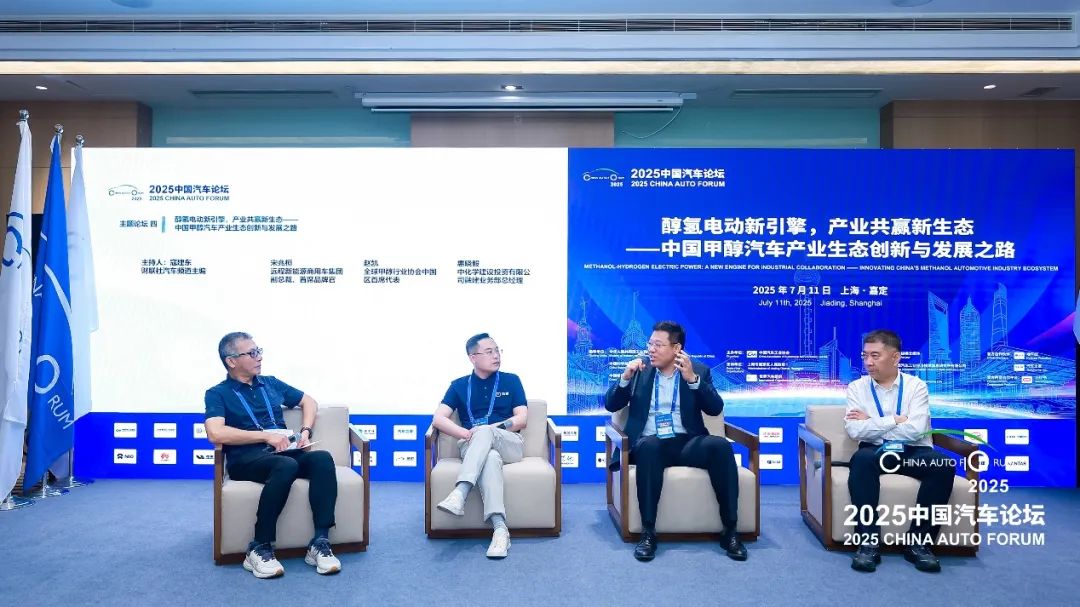 Roundtable Discussion
Roundtable Discussion
Both central and local governments have introduced supportive policies for methanol vehicles and alcohol-hydrogen electric technology. From August 2024 to June 2025, multiple guidance documents from the CPC Central Committee, the State Council, and various ministries and commissions promoted green transformation across industries, emphasizing the development of green transportation infrastructure like methanol stations. Over 50 provincial, ministerial, and municipal policies have been enacted to support the promotion and application of methanol vehicles. Notably, the "Action Plan for the Protection and Construction of Beautiful Rivers and Lakes (2025-2027)" issued by the Ministry of Ecology and Environment and six other departments on May 16, 2025, explicitly calls for accelerating the promotion and application of green alcohol-powered new energy vessels. With subsidies for vehicle purchases and operations, as well as support for methanol fueling infrastructure, a favorable policy environment has been established for alcohol-hydrogen electric vehicles.
The development of the methanol economy aligns well with China's energy endowments and development direction. As China's power system diversifies, greens, and intelligentizes, green methanol production addresses carbon absorption issues and leverages methanol's advantage as an optimal carrier for wind and solar power, storing unstable green electricity in liquid form for efficient utilization. Industry experts widely recognize the methanol economy as a strategic imperative, expected to become a key driver for high-quality economic and social development. Moreover, alcohol-hydrogen vehicles, transitioning from low-carbon to net-zero carbon under new power systems, exhibit increasing competitiveness and vitality, leading a new trend in new energy vehicle development with their unique advantages and broad application prospects.
Methanol vehicles and alcohol-hydrogen electric technology have proven their adaptability, reliability, economy, safety, and environmental performance, transitioning from theory to practice. This forum reinforces industry consensus, clarifies future directions, and strengthens cooperation confidence. As the automotive industry progresses towards low carbonization, resolving pain points and bottlenecks at various stages, methanol and alcohol-hydrogen electric vehicles promise a brighter future, contributing significantly to energy conservation, carbon reduction in commercial vehicles, national energy security and transformation, and advancing China's "dual carbon" goals.

Image: From the Forum
Article: Auto Review
Typesetting: Auto Review






